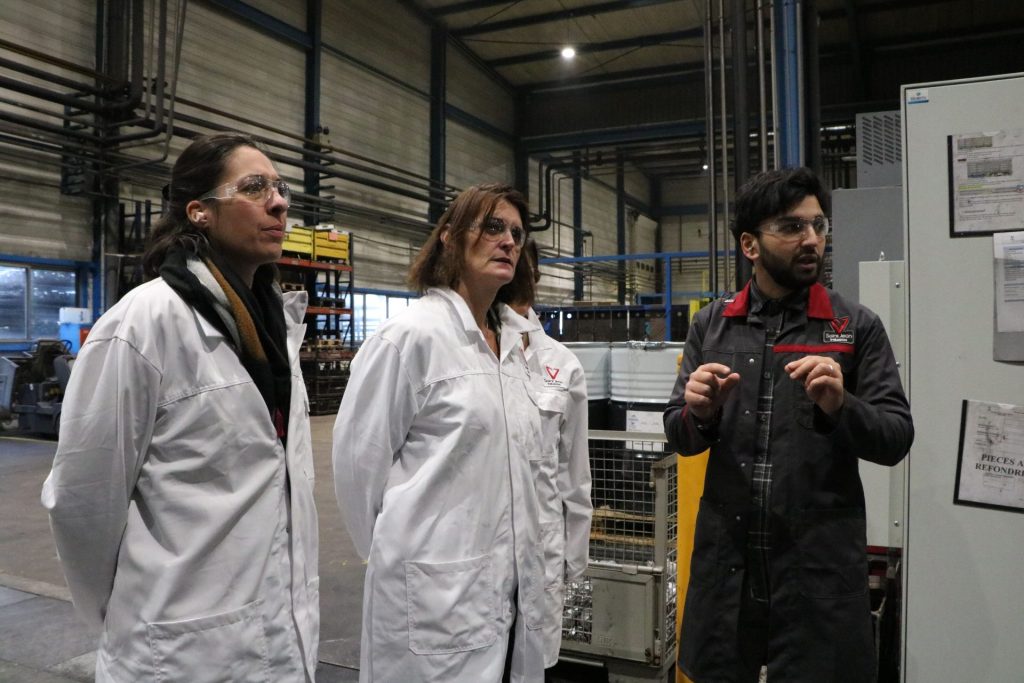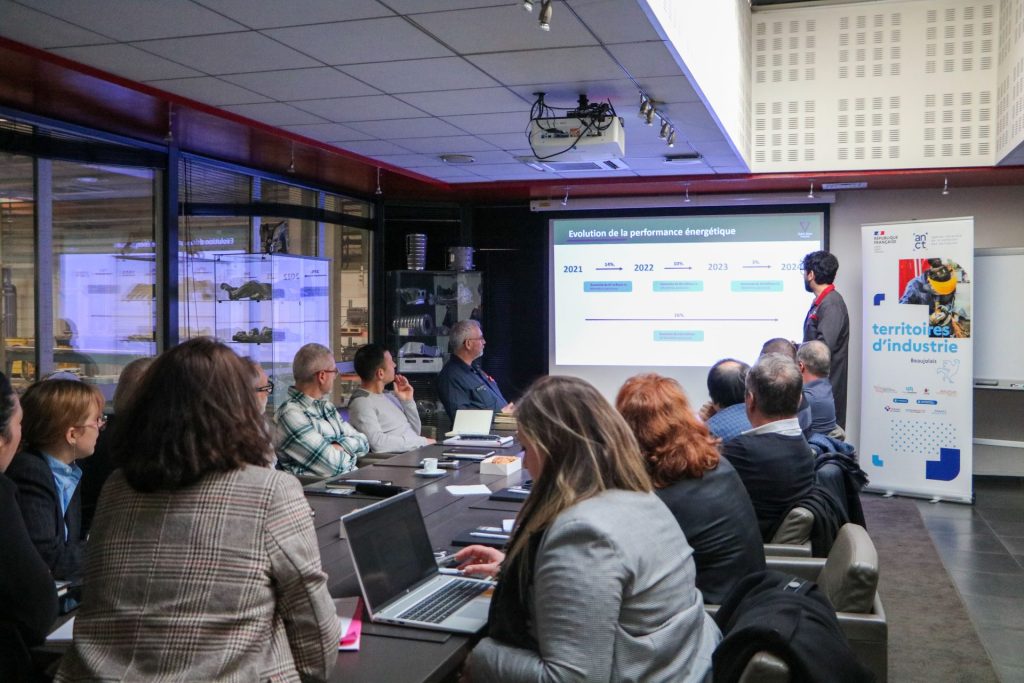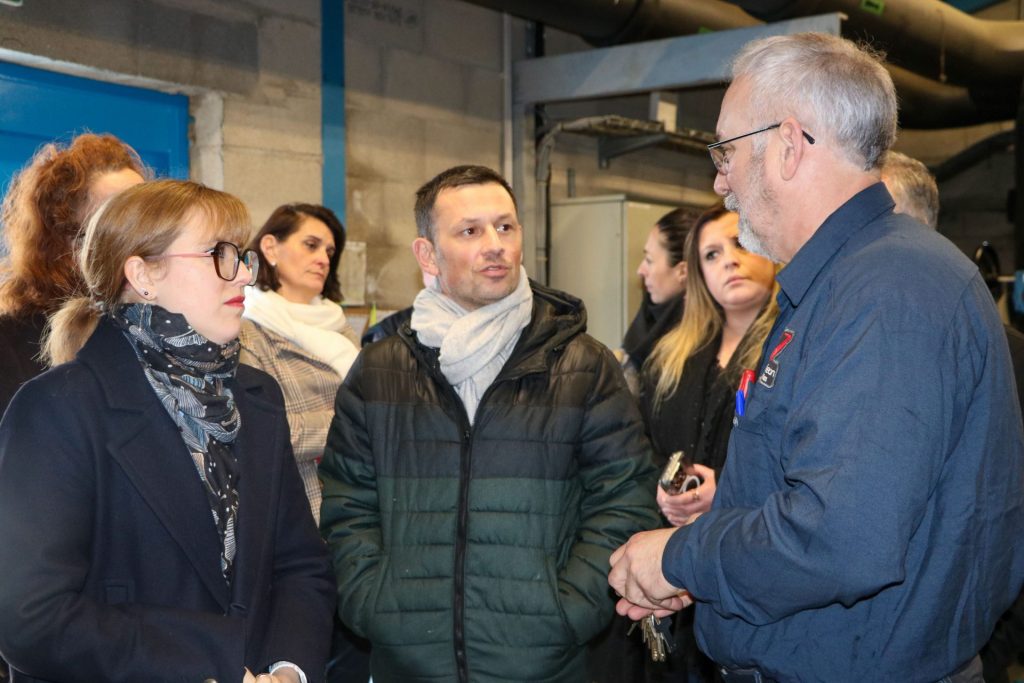As part of its ongoing commitment to energy transition and eco-responsibility, Saint Jean Industries SAS (Belleville-en-Beaujolais) recently welcomed a number of industrial companies to share its advances in waste heat recovery.What is waste heat recovery?
Waste heat is the thermal energy produced by industrial processes that is normally lost to the environment without being exploited. This energy can be recovered and reused either directly on our industrial site (internal use), or injected into a district heating network serving other consumers such as hospitals, schools, gymnasiums, etc. (external use).
Saint Jean Industries’ waste heat recovery initiatives
Last December, we had the pleasure of welcoming Nathalie SIMON, Project Manager at Territoires d’Industrie Beaujolais, accompanied by Laura MEZIAT and Marie-Laure ENDERLIN from the Economic Development Department of the Communauté de Communes du Saône-Beaujolais (CCSB), to present our initiatives implemented in recent years to optimize the use of this often wasted energy. The meeting provided an opportunity to present key figures on our energy consumption, our energy-saving performance and the concrete projects deployed within our facilities.

Internal use
Among our flagship initiatives, in 2020 we introduced a system for recovering waste heat from our compressors and chillers. This recovered energy is reinjected to heat our machining buildings, thus reducing our overall energy consumption while improving the thermal comfort of our facilities.
In the near future, the internal heating network will be expanded to heat several other offices and produce domestic hot water.
External use via a district heating network
Another avenue being explored is the use of this waste heat for a district heating network. The idea is to supply the surplus from the internal heat network, as well as capturing the energy from the hot fumes from our smelting furnaces, and injecting it into a district heating network designed to heat public buildings, homes and other local infrastructures.
Two scenarios were evaluated:
- Surplus from the internal heat network: up to 15% of the municipal heat network requirement.
- Surplus from the internal heat network + recovery from hot smelting furnace fumes: 21% of the municipal heat network requirement.
Towards a more sustainable future
Following this initial meeting, a further meeting with local companies has been scheduled for February to continue these exchanges and present in greater detail our concrete actions to capture and valorize this waste heat. This approach enables us to reduce our carbon footprint while improving our energy efficiency.

These meetings are an opportunity to share our expertise and encourage other manufacturers to adopt similar solutions, so that together we can accelerate the decarbonization of our region. During our last exchange, a tour of our facilities enabled participants to discover our processes and technologies.

At Saint Jean Industries, we believe in the power of teamwork to meet environmental challenges and move industry towards a more responsible and sustainable approach.
